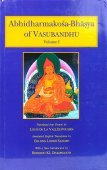Digha, Dīgha: 3 definitions
Introduction:
Digha means something in Buddhism, Pali. If you want to know the exact meaning, history, etymology or English translation of this term then check out the descriptions on this page. Add your comment or reference to a book if you want to contribute to this summary article.
In Buddhism
Theravada (major branch of Buddhism)
Source: Pali Kanon: Pali Proper Names1. Digha - A Yakkha chieftain whose help should be sought by followers of the Buddha, when in distress (D.iii.205). The Buddha says (M.i.201f ) that Digha once visited him and spoke to him of the wonderful attainments of Anuruddha, Nandiya and Kimbila, and remarked how fortunate were the Vajjians that these three were dwelling in the Vajji country. Buddhaghosa (MA.i.431) describes Digha as a devaraja and says that his other name was Parajana. His visit to the Buddha was at Gosingasalavana, just before the Buddha left to see Anuruddha and the others.
2. Digha - A thera of Ceylon, and an expert in the Vinaya. Vin.v.3.
3. Digha - A brahmin. He found he could not satisfy other brahmins, even though he gave five bowls of food to each. One day he went to the vihara, and, in order to test the monks, served them with only one vessel of rice. Thirty monks partook of it and Digha was pleased with their great moderation. AA.i.262f.
Theravāda is a major branch of Buddhism having the the Pali canon (tipitaka) as their canonical literature, which includes the vinaya-pitaka (monastic rules), the sutta-pitaka (Buddhist sermons) and the abhidhamma-pitaka (philosophy and psychology).
Languages of India and abroad
Pali-English dictionary
Source: BuddhaSasana: Concise Pali-English Dictionarydīgha : (adj.) long.
Source: Sutta: The Pali Text Society's Pali-English DictionaryDīgha, (adj.-n.) (Ved. dīrgha, cp. Caus. drāghayati to lengthen, *dlāgh as in Gr. dolixόs (shaft), e)ndelexήs (lasting etc.; cp. E. entelechy); Lat. indulges; Goth. tulgus (enduring)) 1. (adj.) long D.I, 17; M.I, 429; S.I, 104 (°ṃ addhānaṃ); Sn.146, 633 (opp. rassa); Dh.60, 409; Pv.I, 1011 (°ṃ antaraṃ all the time); II, 955 (id.); Th.1, 646 (°m-antare); Dhs.617; KhA 245; PvA.27, 28, 33, 46. See def. at Vism.272.—dīghato lengthways J.VI, 185; dīghaso in length Vin.IV, 279; atidīgha too long Vin.IV, 7, 8.—2. (m.) a snake (cp. M Vastu II.45 dīrghaka) J.I, 324; II, 145; IV, 330.—3. N. of the Dīgha Nikāya (“the long collection”) Vism.96.

Pali is the language of the Tipiṭaka, which is the sacred canon of Theravāda Buddhism and contains much of the Buddha’s speech. Closeley related to Sanskrit, both languages are used interchangeably between religions.
See also (Relevant definitions)
Starts with (+47): Digha Karayana, Dighabahugallaka, Dighabhanaka, Dighabhanaka Maha Abhaya, Dighabhanaka Maha Siva, Dighabhaya, Dighabhayagallaka, Dighacankamana, Dighacarika Sutta, Dighacarika Vagga, Dighaccha, Dighadasa, Dighadassi, Dighadassin, Dighagama, Dighagamani, Dighajantu, Dighajanu, Dighajanu Sutta, Dighajati.
Ends with: Atidigha.
Full-text (+155): Dighabhanaka, Karayana, Dighagama, Digha Karayana, Silakkhandha Vagga, DirghaCarayana, Dirgha, Sadhujanavilasini, Tirkkavattiram, Dighantara, Dighadasa, Atidigha, Sumangalavilasini, Atthakatha, Dighanasika, Dighadassin, Dighavu, Jivin, Dighasotthiya, Sotthika.
Relevant text
Search found 69 books and stories containing Digha, Dīgha; (plurals include: Dighas, Dīghas). You can also click to the full overview containing English textual excerpts. Below are direct links for the most relevant articles:
Settlement in Early Historic Ganga Plain (by Chirantani Das)
Part 2 - Surroundings of Nalanda < [Chapter III - Nālandā: Evidence for rise and progress of the settlement]
Part 8 - Rājagṛha supreme seat (c): Jaina sources < [Chapter II - Origin and Function of Rājagṛha as the seat of Monarchy]
Part 9 - Rājagṛha at the cross-roads of religious affiliations < [Chapter II - Origin and Function of Rājagṛha as the seat of Monarchy]
Guide to Tipitaka (by U Ko Lay)
Digha Nikaya < [Chapter IV - Suttanta Pitaka]
The Book of Protection (by Piyadassi Thera)
Bihar and Eastern Uttar Pradesh (early history) (by Prakash Narayan)
Monks and Brahmanas < [Chapter 4 - Social Process, Structures and Reformations]
Mother’s Brother and Sister’s Son < [Chapter 4 - Social Process, Structures and Reformations]
Trade by Land < [Chapter 2 - Economic and Urban Processes]
Buddhist Monastic Discipline (by Jotiya Dhirasekera)
Maha Prajnaparamita Sastra (by Gelongma Karma Migme Chödrön)
II. The concept of suffering (duḥkha-saṃjñā) < [Chapter XXXVII - The Ten Concepts]
Mahāsudassana-suttanta < [Part 14 - Generosity and the other virtues]
Preliminary note and synonyms of anupūrvasamāpatti < [Class 8: The nine successive absorptions]
Related products
